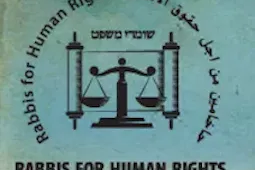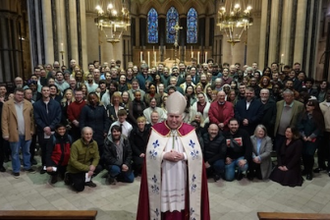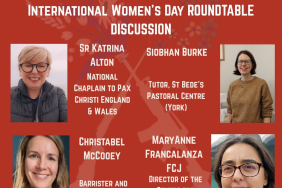Catholic Church committed to global abolition of Death Penalty

Leela Ramdeen
"There is no justice in killing in the name of justice..." (Archbishop Desmond Tutu).
On Saturday 10 October, the 18th World Day Against the Death Penalty will be dedicated to the right to effective legal representation for individuals who may face a death sentence. The theme is: Access to Counsel - a matter of life or death.
As the World Coalition against the Death Penalty states: "Without access to effective legal representation during arrest, detention, trial and post-trial, due process cannot be guaranteed. In a capital case, the consequences that can arise from a lack of effective legal representation can be nothing less than the difference between life and death.
"...the right to legal representation is enshrined in most constitutions and human rights instruments. Unfortunately, justice systems around the world repeatedly violate this right and fail to give those charged with a crime adequate legal representation."
Today 142 countries are abolitionist in law or practice. The trend is moving away from the death penalty. However, 56 countries are still retentionist (including the English-speaking Caribbean countries).
I am Chair of the Greater Caribbean for Life (GCL), an independent not-for-profit civil society organisation devoted to working towards the abolition of the death penalty in our region. GCL believes that society has a right to protect itself from persons who commit heinous crimes and offenders must be held accountable. However, we believe that non-lethal means are sufficient to defend and protect society from offenders. While we condemn the rise of violent crime in our region and express solidarity with victims, we reject the notion that capital punishment will act as a deterrent or foster respect for life in our communities.
The last hanging in the English-speaking Caribbean was on 19th December 2008 when Charles la Place was hanged in St Kitts and Nevis. Even though the Caribbean retentionist states have not carried out any execution for the last 12 years, some continue to sentence persons to death. However, following the restrictions contained in rulings in a number of Privy Council (JCPC) cases, it is now very difficult for these countries to implement the death penalty.
There have been some positive movements in our region. Suriname is the last country in the region that has abolished the death penalty - on March 3, 2015. And, on June 27, 2018, in a landmark judgment, the Caribbean Court of Justice (CCJ) ruled that the mandatory death penalty in Barbados as stated in s.2 of the Offences against the Persons Act, Ch 141, was unconstitutional and should be condemned. Laws, said the CCJ, should not be "calcified to reflect the colonial times." Trinidad and Tobago's (TT)Constitution has the same "savings clause" that was condemned in Barbados. TT remains the only country in our region that maintains the mandatory death penalty.
I invite you to join GCL from 1pm on Saturday October 10th and participate in our FREE virtual panel discussion on this year's theme "Access to Counsel: A matter of life or death".
I will open the Webinar and Juan Luis Molinuevo, Officer in Charge, European Union Delegation to TT, will express words of solidarity. Cara Shillingford - Attorney-at-Law, Dominica, and Member of GCL's Executive, will be the Moderator.
Featured speakers are:
Archbishop Charles Jason Gordon, Archbishop of Port of Spain, TT
Kevin Rivera-Medina - President of the World Coalition Against Death Penalty, Puerto Rico
Gregory Delzin - Attorney-at-Law, TT
Dr David Dorsett - Attorney-at-Law and Anti-Death Penalty Activist, Antigua and Barbuda
Juan Melendez-Colon - Death Row Exoneree (Witness to Innocence)
You can register via the link below:
www.eventbrite.com/e/18th-world-day-against-death-penalty-webinar-tickets-121247995017
In 2018 Pope Francis changed the Catholic Church's teaching. He said that the death penalty is inadmissible in ALL cases; it is "an attack on the inviolability and dignity of the person", and that the Catholic church would work for its abolition worldwide.
On Sunday, October 4, the feast of St. Francis of Assisi, his encyclical, Fratelli Tutti, on fraternity and social friendship, was released to the world. It was signed on October 3 in Assisi, in front of the tomb of St Francis of Assisi. In it, Pope Francis reiterates his assertion that the death penalty is "inadmissible" and that the Catholic Church is committed to its abolition worldwide. He says: "The firm rejection of the death penalty shows to what extent it is possible to recognise the inalienable dignity of every human being and to accept that he or she has a place in this universe."Marla Dukharan, economist, states that for every dollar spent on crime in TT in 2018, 15 cents were spent on prevention. Let's focus on e.g. crime prevention, strengthening family life and our institutions, rather than baying to "pop necks".
Leela Ramdeen is Chair of the Catholic Commission for Social Justice in the Archdiocese of Port of Spain, Trinidad & Tobago, (CCSJ) and Director of CREDI. She was recently awarded the Benemerenti Medal by Pope Francis.


















